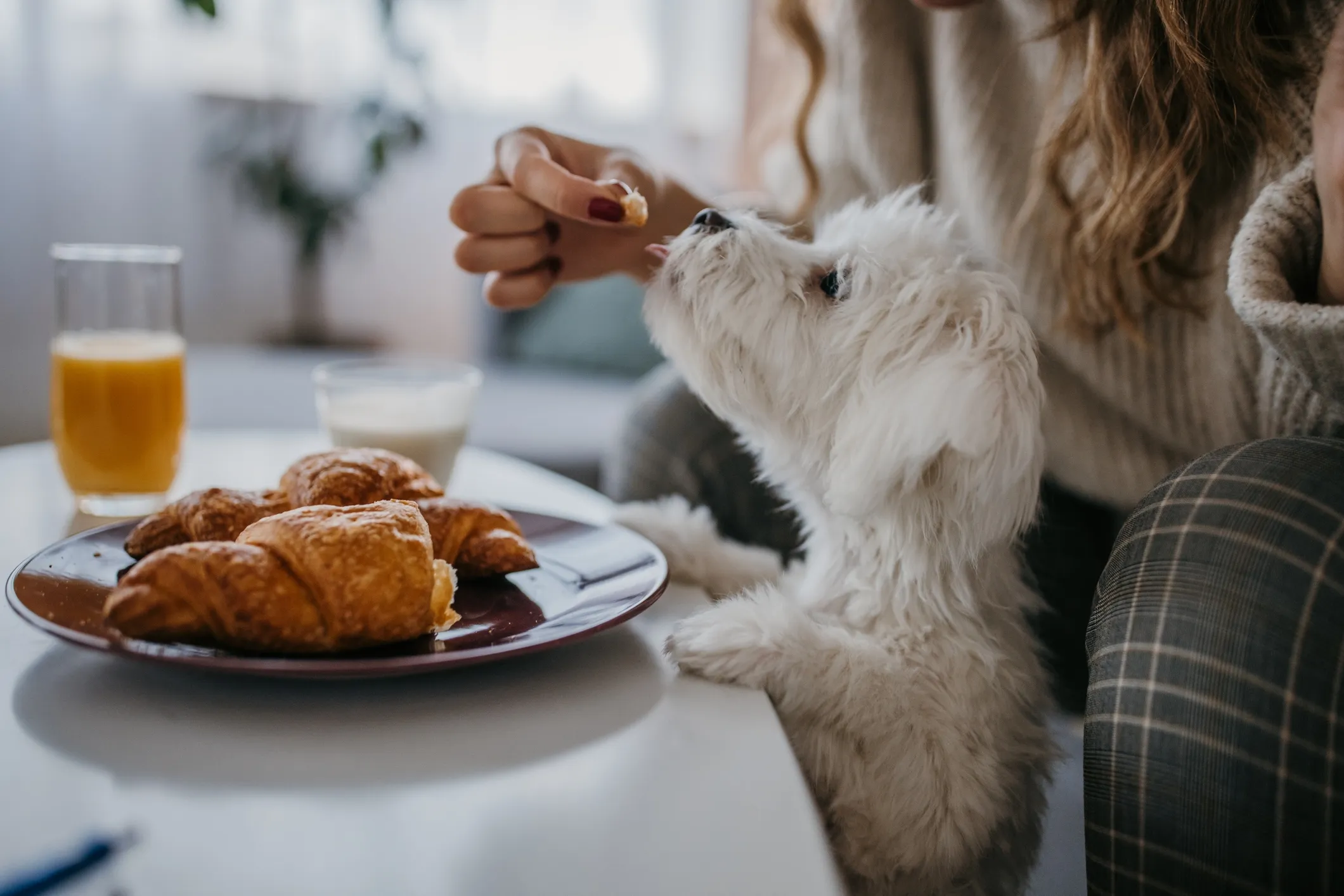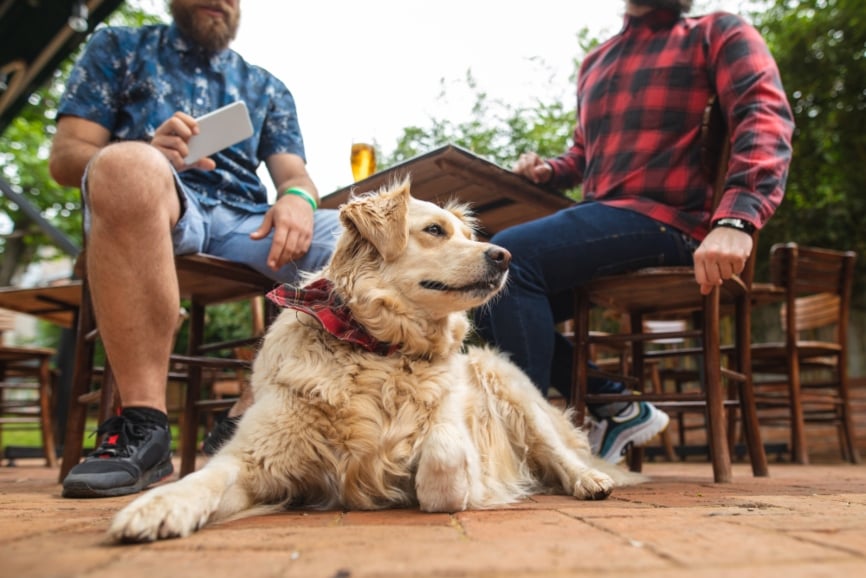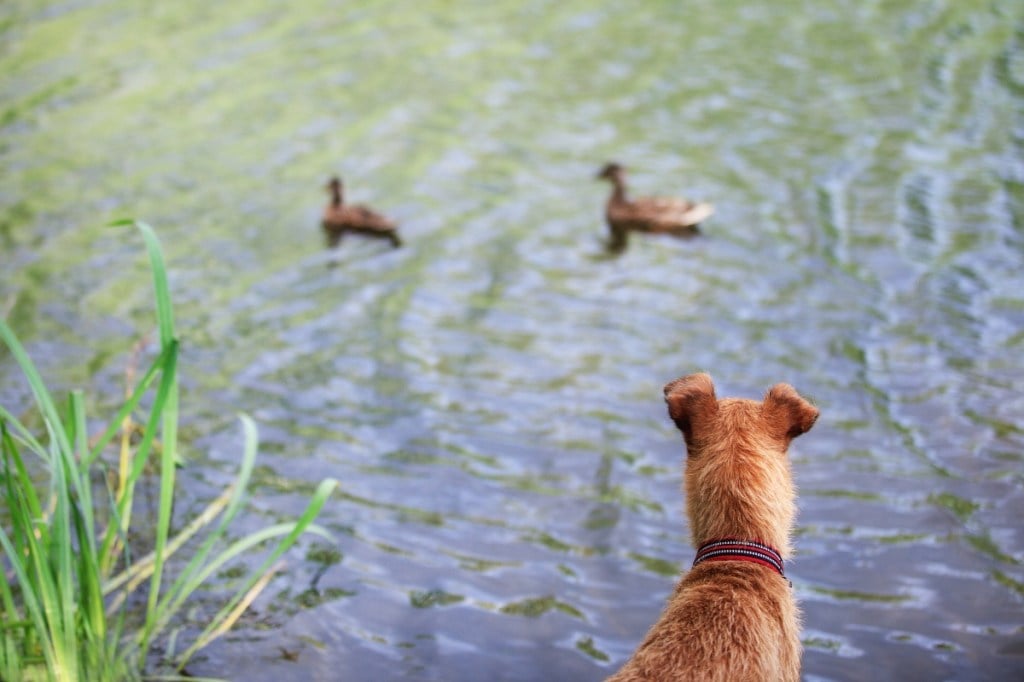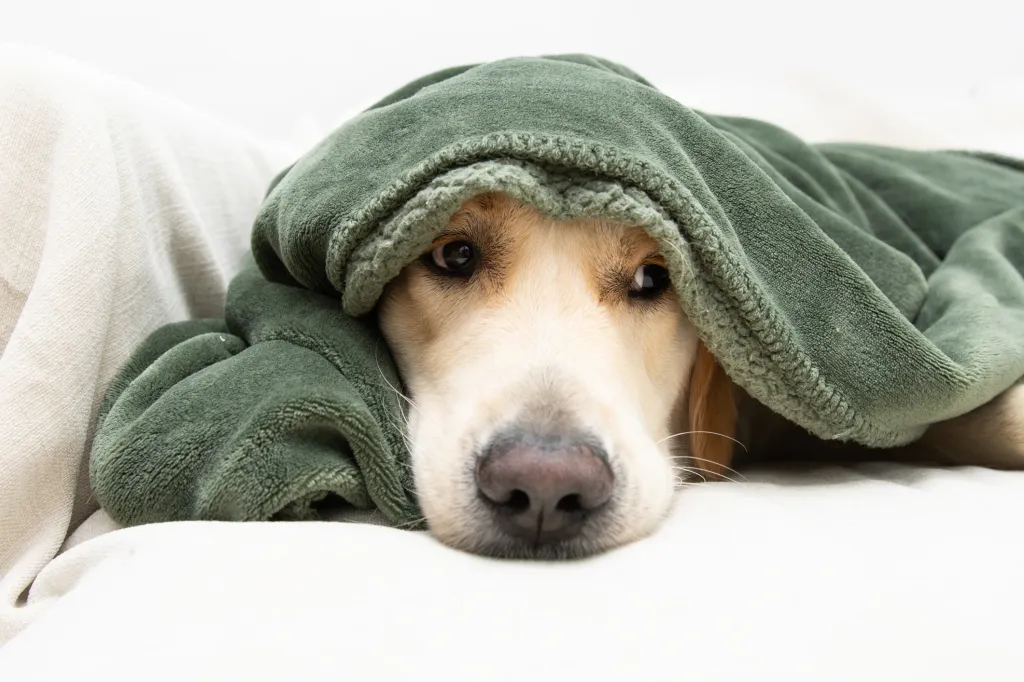Table of Contents
It’s tempting to bond with your new puppy by sharing a snack or treat. But feeding your puppy processed food and bits off your dinner plate could be harmful. This is especially true when your dog is still young and more prone to stomach upset.
To help keep your pet healthy, learn what human food puppies can eat and which items in your fridge and pantry should be avoided.
What Human Food Is Good for Puppies?
Feeding puppies “human” food carries inherent risk, but there are some foods you can share with your pet.
We created a comprehensive list of foods dogs can (and can’t) eat, but here are some quick examples of human food puppies can eat:
- Cheese
- Yogurt
- Eggs*
- Fish*
- Lean meat, such as chicken and turkey*
- Honey
- Peanuts and peanut butter
- Popcorn
- Wheat and other grains
- Certain vegetables (e.g., carrots, sweet potatoes, green beans)
- Most fruit (e.g., banana, cantaloupe, blueberries, watermelon)
*Eggs and animal protein must be fully cooked for safety.
Give safe human food in small amounts and watch your pet for possible intolerances or allergic reactions.
What Human Food Is Bad for Puppies?
Some human food is bad for puppies and can cause everything from stomach blockages to death.
Here are some examples of human food puppies should not eat:
- Almonds
- Macadamia nuts
- Salted foods
- Chocolate
- Cinnamon
- Raisins
- Garlic
- Onions
- Cooked bones
- Citrus
- Sweets (e.g., ice cream, candy)
If your puppy accidentally ingests any of these items, call your veterinarian immediately.
When Can Puppies Eat Human Food?
You can feed your puppy human food in moderation once they’re on a solid food diet. This usually happens when the puppy is around 8 weeks old. However, even safe human food should only be viewed as an occasional treat. Relying on veterinarian-approved dog food as the primary component of your puppy’s diet offers the most balanced nutrition.
What Adult Dogs Can Eat vs. Puppies
Puppies tend to have more sensitive stomachs and also eat smaller portions of food. Owners must be careful to limit human food when pets are young. These special treats should also be introduced slowly, starting with food like cooked meats and vegetables that are easier to digest. Avoid rich and salty foods, like turkey with gravy, until your dog is older and has a more robust digestive system.
Get an Expert Opinion on Your Puppy’s Diet
Planning your dog’s diet can be confusing. Stick to a primary diet of approved dog food with the occasional human food as a treat, and you’ll balance bonding and nutrition perfectly.If you have questions about your dog’s diet or suspect your pet has a food allergy or intolerance, consult with your veterinarian as soon as possible. Watch for symptoms like stomach upset, itching, watery eyes, nasal discharge, hair loss and coughing that could indicate a food issue.







